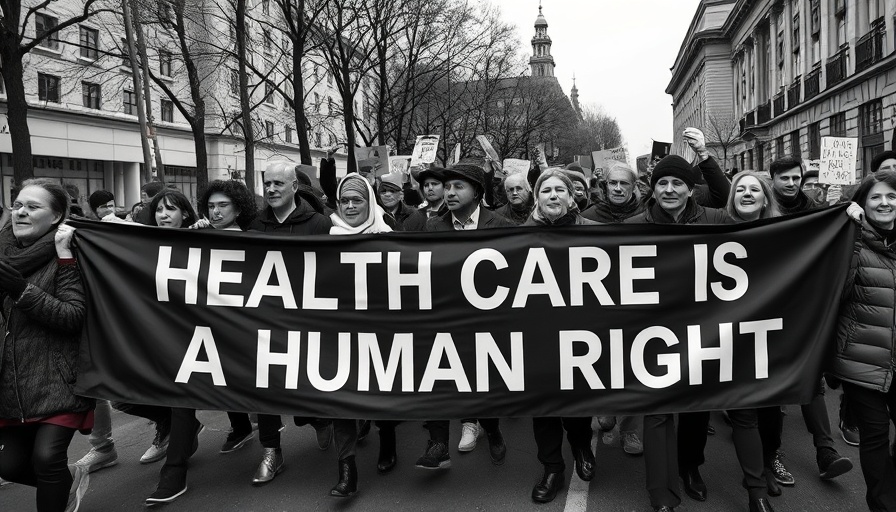
The Reality of Healthcare in America after Trump's Big Bill
On July 4, 2025, a transformative healthcare bill, the One Big Beautiful Bill Act (OBBBA), was signed into law by President Donald Trump, heralding a new phase for Medicaid that many in the healthcare sector fear will exacerbate existing inequities. More than 11 million Americans are projected to lose their health coverage, causing grave concerns not only for the accessibility of healthcare but for the very lives of those who depend on it.
The Cruelty of Work Requirements in Medicaid
As a medical professional who envisioned providing care rather than navigating bureaucratic hurdles, I have witnessed firsthand the fallout from the punitive work requirements now embedded in Medicaid laws. Under OBBBA, these requirements intend to filter out 'able-bodied' beneficiaries who are not employed—a demographic that astonishingly comprises only 8% of Medicaid recipients. For the remaining 92%, who are often juggling jobs, caregiving responsibilities, or battling chronic illnesses, these stipulations serve not as incentives to return to work but as barriers to necessary health services.
Exposing the Flaws in Work Requirements
A glaring example of the inefficacy of work requirements can be seen in Arkansas, which implemented a work requirement that ultimately led to thousands losing their Medicaid coverage without any corresponding increase in employment outcomes. Similar proposals in Michigan and New Hampshire faced legal challenges before reaching implementation, illustrating that states have systematically attempted and failed to demonstrate the supposed benefits of integrating work into Medicaid eligibility. The evidence shows that such programs only create further obstacles to access and contribute to cycles of poverty and ill health.
What This Means for Patients’ Health
Personal experiences of patients are deeply entwined with healthcare policy. Many of my patients, who already struggle with chronic illnesses, face the risk of losing vital care as a result of these sweeping changes. It is estimated that about 24,000 preventable deaths could occur annually due to loss of Medicaid coverage. This will likely amplify health disparities, especially among vulnerable populations, including senior citizens and low-income communities. The emphasis on work as a qualification for health coverage perpetuates a vicious cycle: loss of health leads to job loss, which then leads to loss of coverage and further deterioration.
The Future of Medicaid Under OBBBA
The projection that states will require work activities to access Medicaid coverage may lead many to wonder about the system's future. Currently, Georgia is the only state enforcing these criteria, and its participation has seen minimal enrollment numbers and significant administrative burdens despite extensive spending. As deadlines loom for implementation across other states, advocates warn that the consequences for millions could be dire.
Patients Need Action Now
For those navigating this convoluted system—whether you are a healthcare provider or the patients struggling to access care—it's essential to take a proactive stance. Reach out to your local Medicare Medicaid specialists for guidance on the best plans available. Getting informed about the options tailored for your needs is crucial during this time of uncertainty.
Understanding the ongoing changes in Medicare and Medicaid, especially under OBBBA, is vital for both providers and beneficiaries alike. It’s not merely the textbooks or policies that impact lives; every detail matters when it comes to ensuring safe and effective healthcare delivery. Let’s move forward by advocating for a system that prioritizes health and accessibility for all.
 Add Row
Add Row  Add
Add 




Write A Comment